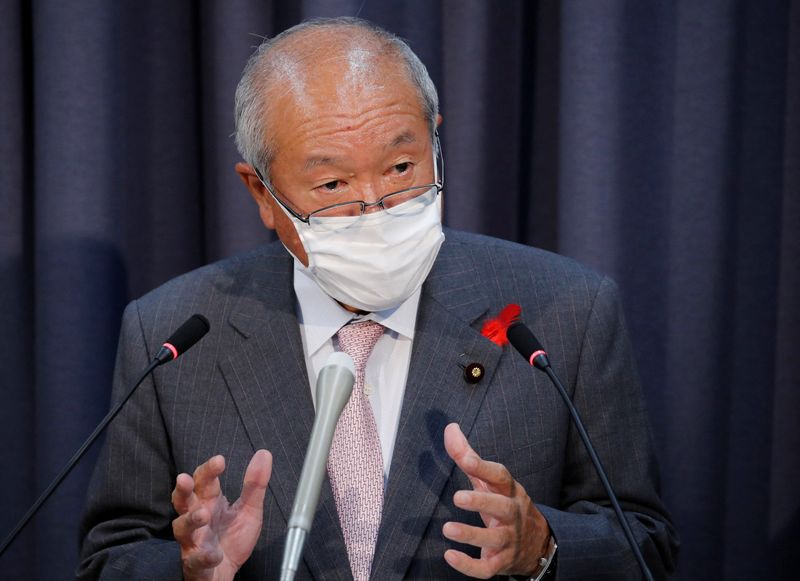By Tetsushi Kajimoto and Leika Kihara
TOKYO (Reuters) -Japan's Finance Minister Shunichi Suzuki stressed on Friday the need for currency stability and said he was watching market moves "carefully," in the wake of the yen's recent declines against the dollar.
Domestic media and some market participants have warned of the potential demerits of a weak yen, which pushes up import prices and households' cost of living at a time when the economy is recovering from the COVID-19 pandemic.
"I won't comment on the currency market itself, but stability is important above all," Suzuki told reporters.
"From that standpoint, we'll closely watch currency market moves and their impact on the Japanese economy," he said, when asked if the weakening yen was negative for the economy.
Suzuki's remarks came as the dollar hovered near a five-year high at 116.355 yen hit on Tuesday, after strengthening on expectations that the U.S. Federal Reserve will embark on steady interest rate hikes while the Bank of Japan keeps rates ultra-low.
Japanese policymakers have traditionally favoured a weak yen as it gives exporters a competitive advantage.
But BOJ Governor Haruhiko Kuroda said last month the boost to export volume from a weak yen may have declined compared with the past as more Japanese companies have shifted production abroad.
Kuroda also said the hit to households from a weak yen may have become bigger due to Japan's increasing reliance on raw material imports, offering the most direct acknowledgement yet of the potential disadvantages of a weaker yen.
With wholesale inflation already hitting a record high and driving up the cost of living, further yen declines could become politically painful for Prime Minister Fumio Kishida ahead of an upper house election looming in the summer.
Data released on Friday showed household spending fell for the fourth straight month and inflation-adjusted real wages slumped 1.6% in November from a year earlier.
J.P. Morgan analysts say the yen's real effective rate, which tumbled to its lowest level in 50 years, is set to fall further and slash consumers' spending power.
But Japanese policymakers see little room to intervene in the currency market to arrest the yen's decline, with some conceding there is good reason for it to soften given Japan's weak economy, waning competitiveness and dire public finances.

"In a way, a weak yen reflects Japan's fundamentals," one ministry said on condition of anonymity, though adding that Tokyo was ready to step in if yen declines become too sharp.
Japan has stayed away from intervening in the currency market since 2011 when devastating earthquakes and the subsequent Fukushima nuclear crisis triggered a spike in the safe-haven yen.